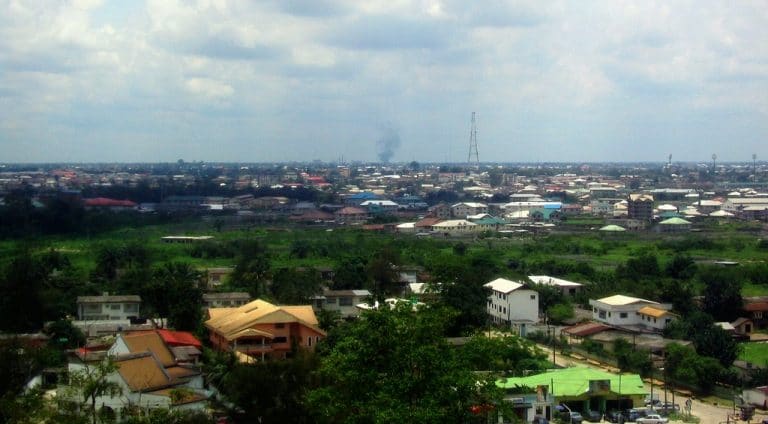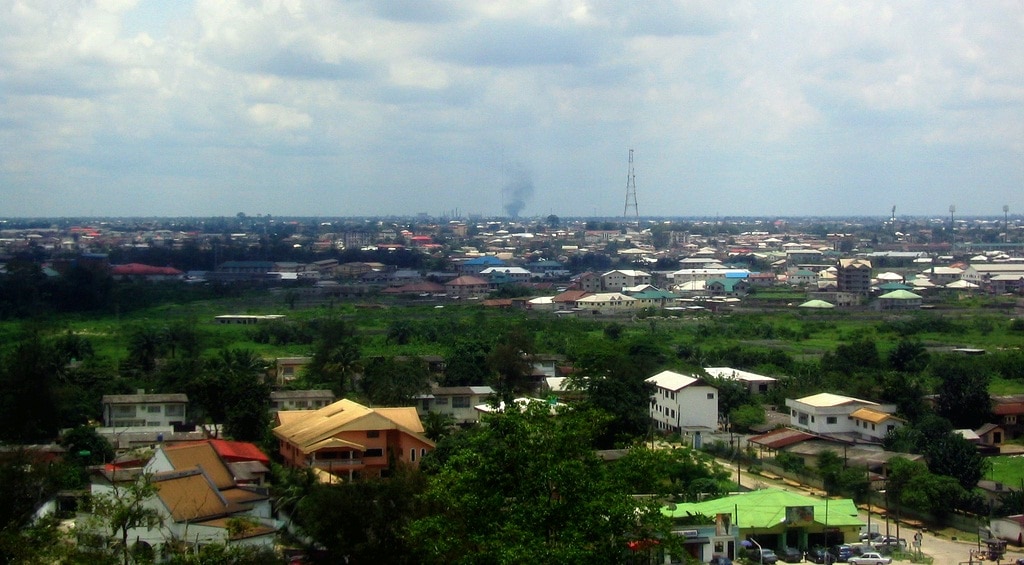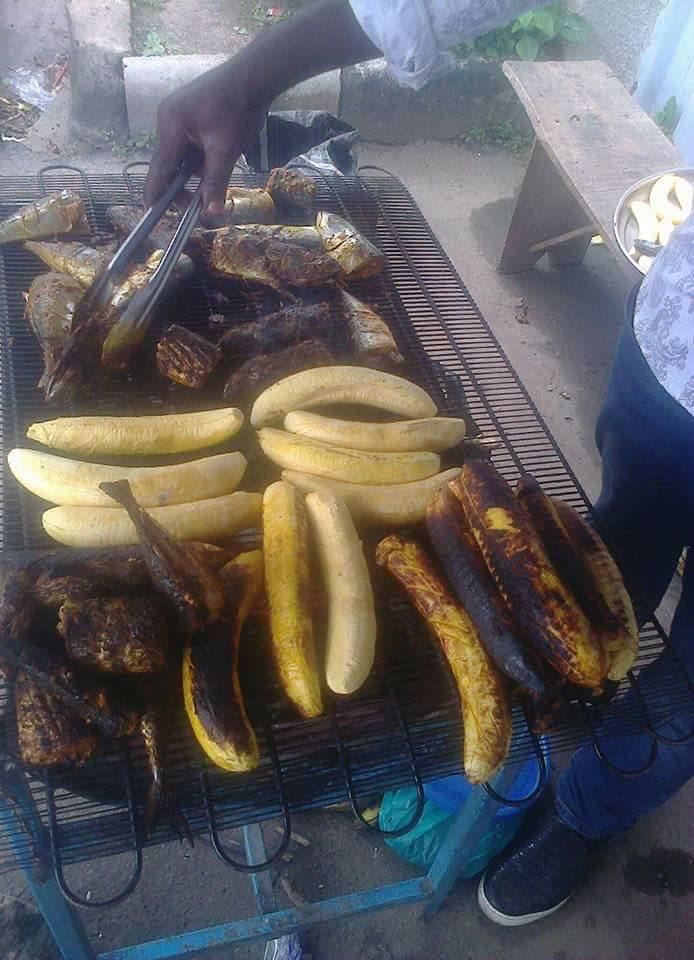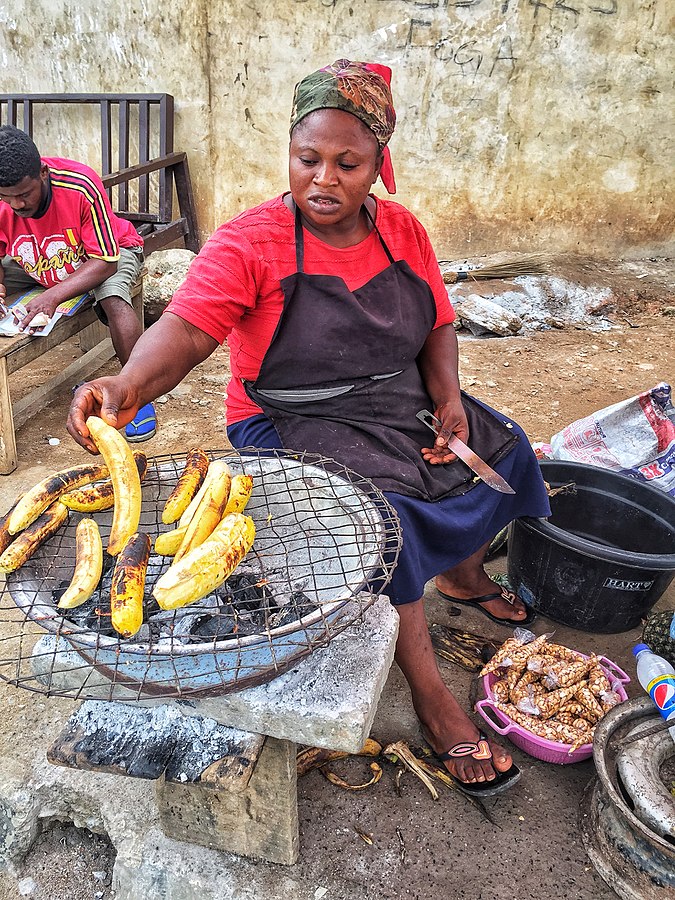
With diverse cultures and more than 250 ethnic groups, food plays a major part in the uniqueness of my country.
My name is Rachel Otulaja, I am from Ogun state in one of Africa’s most beautiful countries, Nigeria.
I am a graduate of Child development and family studies from the prestigious Federal University of Agriculture, Abeokuta, Ogun State, Nigeria.
I love to travel, cook, dance, sing and sew.
I also work as a customer care representative or virtual assistant to organizations and individual clients who need my services.
Before I go on, I will like to give a quick explanation about the attributes of Nigerian delicacies.
Nigerian Delicacies exposed
Nigerian foods, just like other west African foods especially soups are popularly known for being spicy and highly aromatic.
As Nigerians don’t eat their soups in Isolation, there are lots of solid foods (‘swallow’ as popularly called) with which they partner their soups while eating.
The technique for eating is molding the solid foods into little balls that can easily be swallowed, dipping them into the soups and finally swallowing.
Speaking of swallow foods, Nigeria has lots of them ranging from Eba (cassava flakes made into soft solids), pounded yam which is mostly loved by the Ondo and Delta tribes in Nigeria, Amala which is pertinent to the Oyo people, wheat, fufu, tuwo (rice swallow) for the Hausa people, Starch, etc.
Carbohydrate foods such as yam, cassava, plantains, rice, and beans are prominently part of the Nigerian diet and they are often consumed with diverse soups or stews that contain meats, fish, and vegetables.
The Food Festival in Nigeria is another ball game entirely, a serious affair that has everyone going all out to make sure it is successful.
Since I won’t be able to discuss all the foods we have in Nigeria and festivals as well, I will talk about the “Port Harcourt bole festival” in this piece.

Port Harcourt, Nigeria.
The city of Port Harcourt in Nigeria is, generally regarded as the capital of Bole and fish, as there are vendors in literally every street corner with piles of Bole and fish to tantalize the taste buds of hungry passers-by and captivate the mind of visitors.
Because the natives believe that good living comes with good eating, the people have greatly taken advantage of the city’s richness in plantain, got creative, and carved a niche for themselves.
Port Harcourt ’Bole’ or ‘Boli’
Boli or Bole (roasted plantain) is a delicious and filling street food that students and low-income earners popularly eat as a snack but the fact that Nigerians have no class when it comes to ‘bole’ stands sure, The snack is popular on the street but it can be made at home in ovens or on open grills.
This street food popular in the Niger Delta region is made from plantain roasted and served with pepper sauce and roast fish or chicken, or with yam or potato. It is also popular in western Nigeria, where it is served with groundnuts (peanuts) or palm oil and salt.
This brings me to describe the biggest food fair in the south-east and western parts of the country, ‘the Bole Festival’.

Port Harcourt ‘Bole’ Festival
The Bole Festival, a food funfair that takes place at Port Harcourt, Rivers State in Nigeria. is currently the biggest food festival in the Southern and Eastern parts of the country.
It is an annual entertainment and social gathering event tied to Port Harcourt’s signature food ‘Bole’, a delicacy of roasted plantain, fish, yam, and other roastable edibles with the sole aim of celebrating the rich culinary heritage of the Niger Delta, placing emphasis on the various creative ways many people prepare Bole (roasted plantain) and roasted fish which is by far the most popular street food in the area.
The event celebrates the Nigerian-evolved urban culture that creates a guide to our rich heritage using food, this festival attracts lovers of food from across the world.
On the streets around its venue, the Bole Festival gathers together about 8,000 guests for one day.
The food feast is currently the biggest in the south of Nigeria attracting thousands of food lovers from all over the country.
During the festival, food exhibitors demonstrate creative and stylish preparations of bole. Apart from the exhibitions, there are food contests, music and comedy performances, and indoor and outdoor games, with prizes.
There is never a dull moment at all at the festival as it is full of fun-filled activities such as dance, music, games and comedy that trigger an adrenaline rush
Bole which is made from plantain is usually served in different ways depending on the part of the country you find yourself in. In places like Port Harcourt, Yenogoa, and most cities in the south, it is often served with pepper sauce, roasted fish, with yam or potato by the side, while in Akwa Ibom you can have it served with roasted chicken and a special sauce, in Lagos and other south-western states, it is served with roasted peanuts or palm oil sprinkled with salt.
There are usually a variety of food exhibitors showcasing and selling diverse displays of Bole (plantain) and fish. And the festival is usually marked by side attractions such as music performances, comedy, food competitions, indoor and outdoor games with prizes to be won and fun and game activities for kids.
Since the first edition of the Bole Festival in 2016, organizers of this feast have offered free vendor spaces as a means to empower local street food sellers, thereby, giving them the opportunity to showcase their creativity with the bole, gain clients and increase monthly sales by over 200 percent on the day of the festival.

The yearly event, which started in 2016, with only 300 people in attendance and two local street food sellers, has witnessed tremendous growth in the past two years. In 2017, there were over 2,000 attendees and 35 vendors. By 2018, over 8,000 people were in attendance with 80 vendors and they even gained sponsorship from big brands. The festival has also encouraged and built a strong and interactive online community for food lovers.
In 2018 the event became a testament to the cause and effect of such a festival. The event was hosted by David Wilson alongside a Speech featuring music and cultural dance performances.
Another eye-catching activity that takes place at that festival is face-painting which involves artists having to make beautiful but temporary paintings on the faces of attendees.
A beautiful Reciparian Cake caught the attention of many with its beautiful, mouth-watering looks that depicted the Bole, Fish, and sauce in its natural habitat.
The event features both musicals from Port Harcourt-based artists, stand- up comedy, and a couple of other outdoor games including a drinking competition.
The festival has successfully encouraged and built a strong connection and interactive online community for food lovers. This year’s Bole festival held on August 3’s theme was “Our taste, Our Culture”.
The Festival is unrivaled in its iconic arrangement where people of all age groups and caliber are joined for a day in a fun, laughter, dance, and sampling of culture through something as simple as food.
You can agree with me that the best bonds are created over food, drinks, and shared experiences, this is an experience to have at least once in a lifetime and it is even better with a group of friends to spice up this fun and unforgettable experience.
The festival usually has social media buzzing with pictures and videos that leave those who didn’t attend wishing that they did.
When Port Harcourt in Nigeria brags about being the “world Bole capital”, you can agree with me that they aren’t joking about it because from Bolè to cake to a variety of other amazing dishes, Port Harcourt sure takes the lead when it comes to hosting food festival.
I am a Nigerian and I have first hand experience about the boli delicacy, the experience is well captured in this article, welcome Rachel.
Thank you Ijeoma.
Let’s go eat more boli.😊😊
Having lived in Port Harcourt, I can attest to this.
You wrote so well Rachel. Weldone
Bole is a food for all. Good thing is, I have never heard of anyone complain of stomach upset or any of such after having this meal.
This is a good delicacy, that is full of nutrition, Rachel you really did justice to it. Kudos